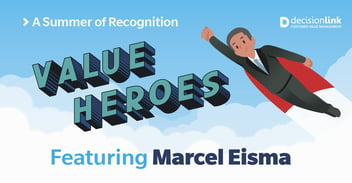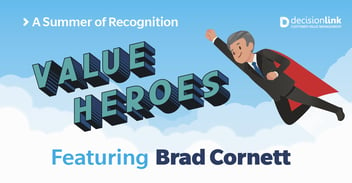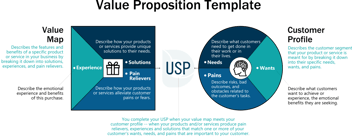THE KEY TO VALUE REALIZATION: Win More with Value Pricing and Selling
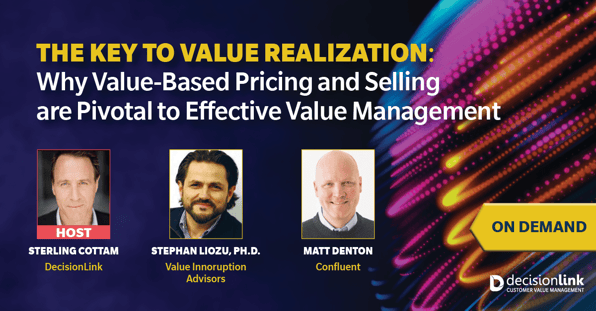
Value-based selling and pricing are essential for effective value-based management. As a result, more and more organizations are adding customer success teams even in non-SaaS businesses. With everyone facing increased competition, the ability to serve as advisors to customers and walk them through a value-based conversation sets businesses apart. So what does this process actually look like? Don’t miss our webinar featuring value-based pricing and selling experts, Dr. Stephan Liozu and Matt Denton sharing their personal experience. The tips, insights, and takeaways run deep with actionable, real-world perspective beneficial for SaaS and non-SaaS companies alike.
VALUE-BASED PRICING AND SELLING—TWO SIDES OF THE SAME COIN
What is the difference between value-based pricing and selling? As Dr. Stephan Liozu says, “You cannot do one without the other” because they are interconnected, but there is a difference. Value-based pricing is quantifying your differentiation based on the economic value it brings to the customer. This requires modeling, individualized business value assessments, value propositions, and pricing guides. Customer segmentation is incredibly helpful in this part of the process. By separating or segmenting businesses by similarities and pinch points, you can customize the value expressed for each customer more quickly. Value-based pricing often lies on the shoulders of value engineers. On the other hand, value-based selling is basing strategy on the value you’re extracting—
this is the role of key account management and sales teams.
“Their objective is to reduce your price and yours is to sell value.” STEPHAN LIOZU, PH.D.
CREATE VALUE SMARTER, NOT HARDER
Matt and Stephan agree that adopting the right technology is a big part of effective value-based selling and pricing. Matt adds that “technology helps standardize the process of value-selling.” Before, this process was manual with people using Excel or PowerPoint. As a result, there was little standardization, and it was difficult to control what was going out to clients because everyone had their own method. The data was fragmented, and it was impossible to replicate or scale in any way.
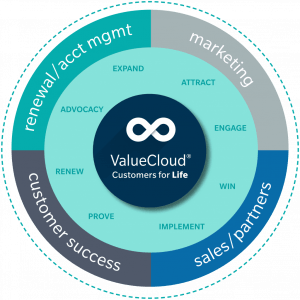
Standardization (and the technology that powers it) allows you to track close rate trends, if and when a sales person has presented to a prospect, and replicate effective approaches. For Matt, having the right technology, like DecisionLink’s ValueCloud®, helps “simplify the message, standardize it, enable 100s of people to go have conversations with customers and then also track the results.” For example, when Matt’s company, Confluent, launched its value management platform, it was able to operate efficiently with a 90:1 ratio of sellers to value realization engineers. This made value selling scalable which impacted close rates and drove revenue.
With the right platform in place, there is no excuse for sales conversations not to lead with value. Even if the account or procurement agent asks about pricing, it’s always important to start with value. Stephan cautions,
“Their objective is to reduce your price and yours is to sell value.” Procurement specialists are experienced at driving down prices with software, research, and a range of tools to help with this. If your sales “What I’ve seen conversations lead with the price, you’ve focused on their end goal for them.
Instead, you should always be highlighting your differentiation and what that means for the customer. By understanding the challenges their business faces and linking it to your solution, talking value comes naturally. When a procurement agent asks about the pricing, you have the insights to pivot to a value conversation. For this to happen naturally, Matt and Stephan emphasize that there has to be a mindset shift. You have to come to meetings extremely prepared, with a clear understanding of the data, and an expectation of pushback from the buyer. There’s no winging it. Having a clear approach in mind leads to a better conversation for everyone. Plus, your customer will see that you understand their business and have more faith that your solution can address their challenges.
“What I’ve seen from experience is that there’s a 2x win rate when you’re using the technology versus not.” MATT DENTON Confluent
CREATING CHAMPIONS OF PROFITABILITY
The next step in the process is value realization. Once you’ve signed the deal, it’s time to deliver. Matt aptly summarizes, “When it comes to realization you have to be as good in the backend as you were in the front end.” Ultimately, this is what matters to the client—your ability to make true on your value promises. It is critical that customer success teams can point to metrics when it’s time to renew, up-sell, or cross-sell your product or service. This is an added benefit of having the right technology. Quantifying benefits for customers can transform the renewal conversation. Stephan notes that metrics can equip sales and customer success teams to demonstrate their contribution to the business. This is data they can show to executives and that can be leveraged to request more budget. And, as more data is added to value management platforms, the metrics get better and smarter. It enables more standardization, more accurate surveys, and more precise value hypotheses. Overall, you can leverage value realization to enhance your relationship with customers and as basis to justify price increases from year to year.
This just scratches the surface of the insights shared in the session. To hear our panelists talk about how you can gain confidence in value conversations and the benefits of value realization for long-term customer relationships, tune in to the webinar.
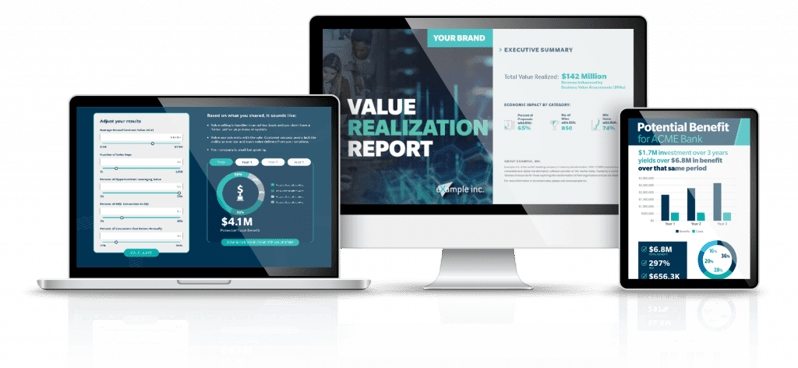
GET TO KNOW OUR PANELISTS:

Sterling Cottam is the moderator of the webinar and Senior Director of Product & Platform Value at DecisionLink.

Stephan Liozu, Ph.D. is founder and disruptor at Value Innoruption Advisors and the former Chief Value Officer at Thales.

Matt Denton is Senior Director of Business Value Consulting at Confluent.

 ValueCloud
ValueCloud
.png?width=118&height=76&name=Rectangle%20(3).png) ValueCloud Ignite
ValueCloud Ignite
.png?width=92&height=92&name=Rectangle%20(4).png) Free Assessment
Free Assessment
.png?width=100&height=100&name=Rectangle%20(5).png) Watch a Demo
Watch a Demo
.png?width=82&height=96&name=Rectangle%20(6).png) Value Calculator
Value Calculator
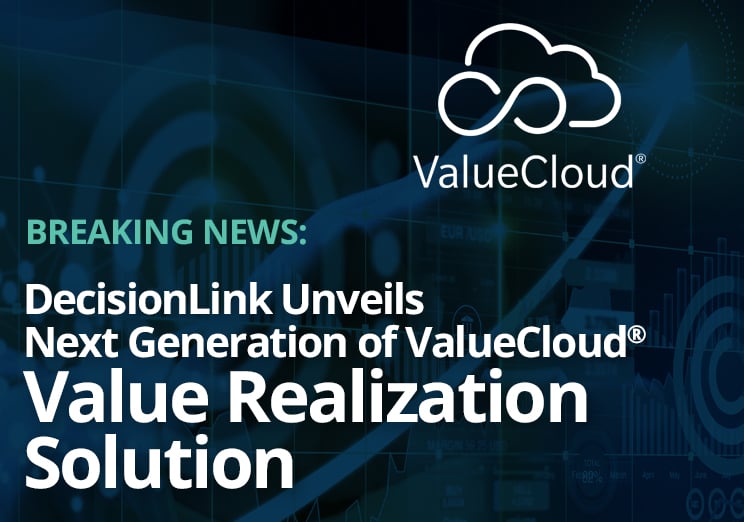
.png?width=62&height=51&name=Group%2010%20(1).png) Marketing
Marketing
 Sales
Sales
 Customer Success
Customer Success
 Engage Prospects
Engage Prospects
 Win Deals Faster
Win Deals Faster
 Retain Customers
Retain Customers
.png?width=62&height=62&name=Rectangle%20(8).png) Adopt and Scale
Adopt and Scale
.png?width=54&height=54&name=Rectangle%20(9).png) Cybersecurity
Cybersecurity
 Healthcare
Healthcare
.png?width=54&height=54&name=Rectangle%20(10).png) IT & Software
IT & Software

